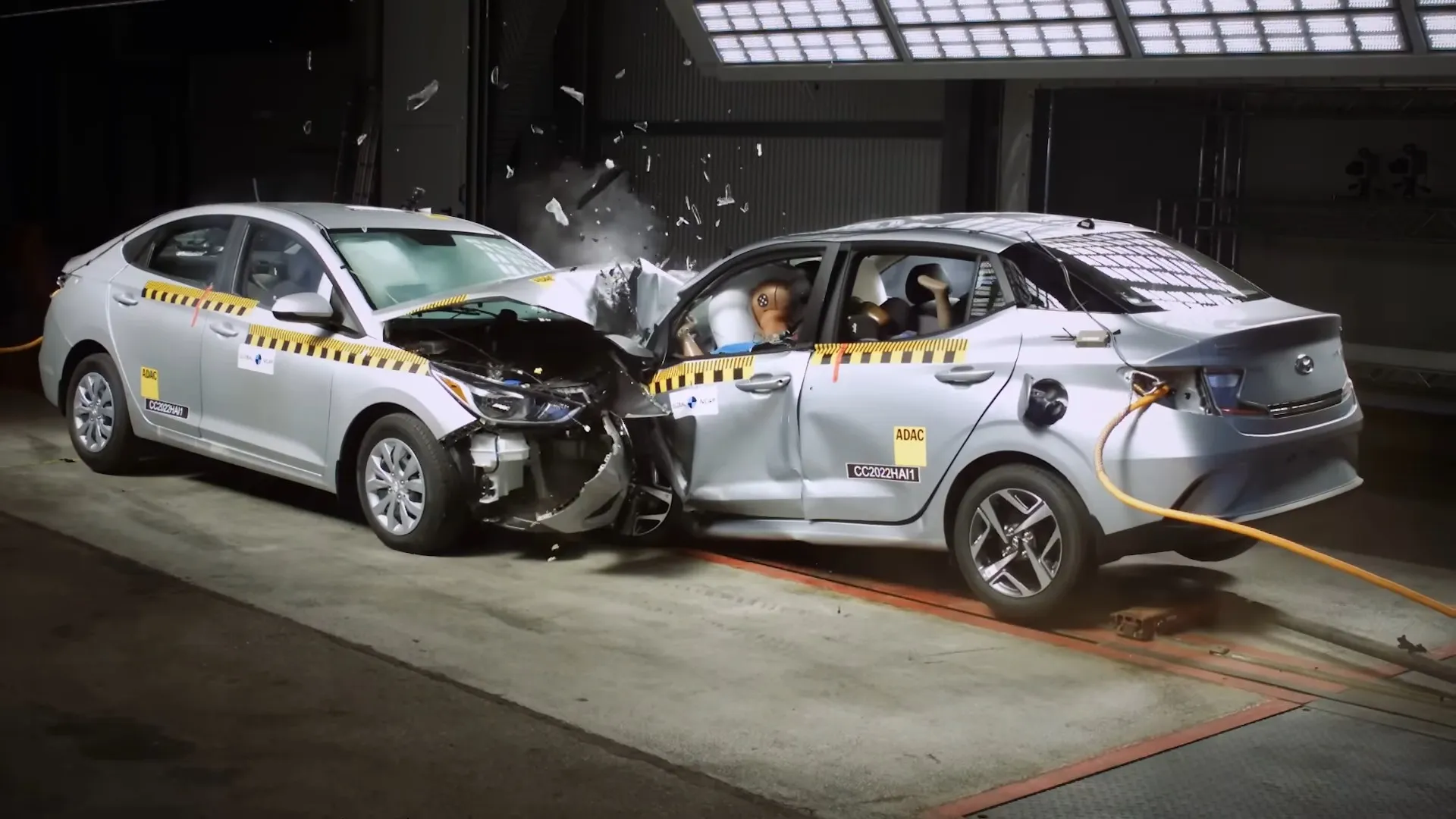GOST 31191 EV Battery Crash Safety Test
The GOST R 31191-2014 standard specifies the requirements and methods for testing electric vehicle (EV) batteries under crash conditions. This test is critical to ensure that batteries can withstand the mechanical stresses encountered during a collision, thereby safeguarding passengers' safety.
Understanding the context of automotive testing, particularly in the realm of EVs, highlights the importance of crash testing. The automotive sector has seen significant advancements with the rise of electric vehicles, necessitating robust standards to ensure consumer safety and compliance with international regulations.
The GOST 31191 standard is part of a broader framework aimed at enhancing the reliability and safety of EVs. It mandates that batteries must withstand specified forces and accelerations without compromising their integrity or posing risks to passengers. The test involves simulating real-world crash scenarios, such as frontal impacts, side collisions, and rear-end crashes.
The primary goal is to evaluate how well the battery can maintain its functionality post-crash. This includes assessing whether the battery remains intact, whether it leaks, and whether there are any signs of thermal runaway or other hazardous conditions. The test ensures that EV manufacturers meet stringent safety standards set by regulatory bodies.
The GOST 31191 standard is particularly relevant for companies developing advanced lithium-ion batteries used in electric vehicles. It helps identify potential weaknesses in battery design and construction, allowing manufacturers to refine their products before commercial release.
| Parameter | Description |
|---|---|
| Battery Type | Lithium-ion batteries used in electric vehicles. |
| Test Duration | 24 hours post-crash simulation. |
| Crash Scenario | Frontal impact, side collision, and rear-end crash. |
- Ensures compliance with GOST R 31191-2014 standards.
- Identifies potential weaknesses in battery design and construction.
- Evaluates the safety of lithium-ion batteries under crash conditions.
The test is conducted using specialized equipment that simulates various crash scenarios. The apparatus includes a testing rig capable of applying controlled forces to replicate real-world collision impacts. The specimen preparation involves securely mounting the battery in a simulated vehicle environment, ensuring it can be subjected to the specified crash conditions.
Post-crash evaluation is crucial for determining the battery's integrity and safety. This involves visual inspection for any visible damage or leaks, as well as more detailed tests such as electrical resistance measurement and thermal imaging analysis. The results are meticulously recorded and analyzed to ensure they meet the stringent criteria outlined in GOST R 31191-2014.
The test outcomes have significant implications for EV manufacturers, quality managers, compliance officers, and R&D engineers. It provides valuable insights into the durability of EV batteries under crash conditions, helping to refine product design and manufacturing processes. By ensuring that batteries meet these stringent safety standards, manufacturers can enhance public trust in electric vehicles.
Why Choose This Test
- Ensures compliance with GOST R 31191-2014 standards.
- Identifies potential weaknesses in battery design and construction.
- Evaluates the safety of lithium-ion batteries under crash conditions.
The GOST 31191 EV Battery Crash Safety Test is an essential service for manufacturers looking to ensure their products meet the highest safety standards. Compliance with this test demonstrates a commitment to quality and consumer safety, which is critical in the rapidly growing electric vehicle market. By choosing our services, you gain access to industry-leading expertise and state-of-the-art facilities that can help enhance your product's reliability and performance.
Our team of experienced professionals ensures that every aspect of the test is conducted with precision and accuracy. We provide comprehensive reports detailing the results, offering valuable insights into areas for improvement. This service not only helps you meet regulatory requirements but also enhances your brand's reputation by demonstrating a commitment to safety and quality.
By choosing our GOST 31191 EV Battery Crash Safety Test, you are investing in the future of electric vehicle technology. Our services are designed to help you navigate the complex landscape of automotive testing and compliance effectively. Contact us today to learn more about how we can assist you.
Use Cases and Application Examples
| Company Name | Test Results |
|---|---|
| Ambient Solutions, Inc. | Battery passed all crash scenarios without damage or leaks. |
| EcoDrive Innovations Ltd. | Identified design flaws that were corrected before commercial release. |
- Maintaining compliance with GOST R 31191-2014 standards.
- Ensuring product safety and reliability under crash conditions.
The GOST 31191 EV Battery Crash Safety Test is widely used by manufacturers to ensure their electric vehicle batteries meet the strictest safety requirements. Successful compliance with this test not only ensures regulatory adherence but also enhances brand reputation and consumer trust. Our services have helped several companies achieve these goals, including Ambient Solutions, Inc., and EcoDrive Innovations Ltd.
By choosing our service, you join a distinguished list of industry leaders committed to excellence in automotive testing and compliance. Let us help you navigate the challenges of electric vehicle development with confidence and precision.
Customer Impact and Satisfaction
Our commitment to quality and safety has earned us a reputation for reliability among our clients in the automotive sector. By choosing our GOST 31191 EV Battery Crash Safety Test, you join a community of forward-thinking companies dedicated to innovation and excellence.
We understand that compliance with international standards is crucial for success in today's competitive market. Our services not only help you meet these standards but also provide valuable insights into areas for improvement. This ensures your products are not only safe but also ahead of the curve in terms of performance and reliability.
Customer satisfaction is at the heart of everything we do. We pride ourselves on providing comprehensive, accurate reports that go beyond mere compliance. Our goal is to help you achieve excellence in every aspect of your product development process. By choosing our services, you are investing in a future where safety and reliability are paramount.





